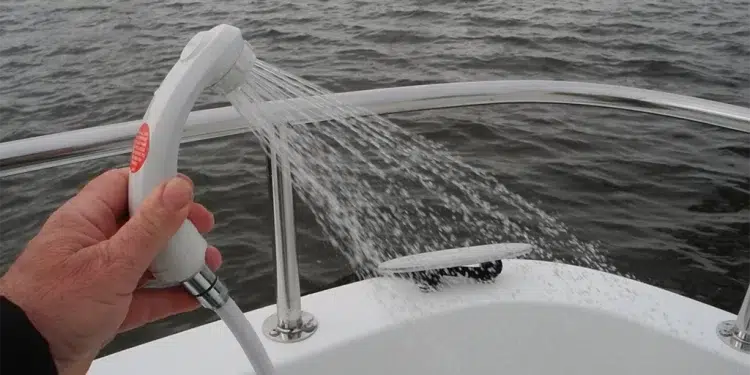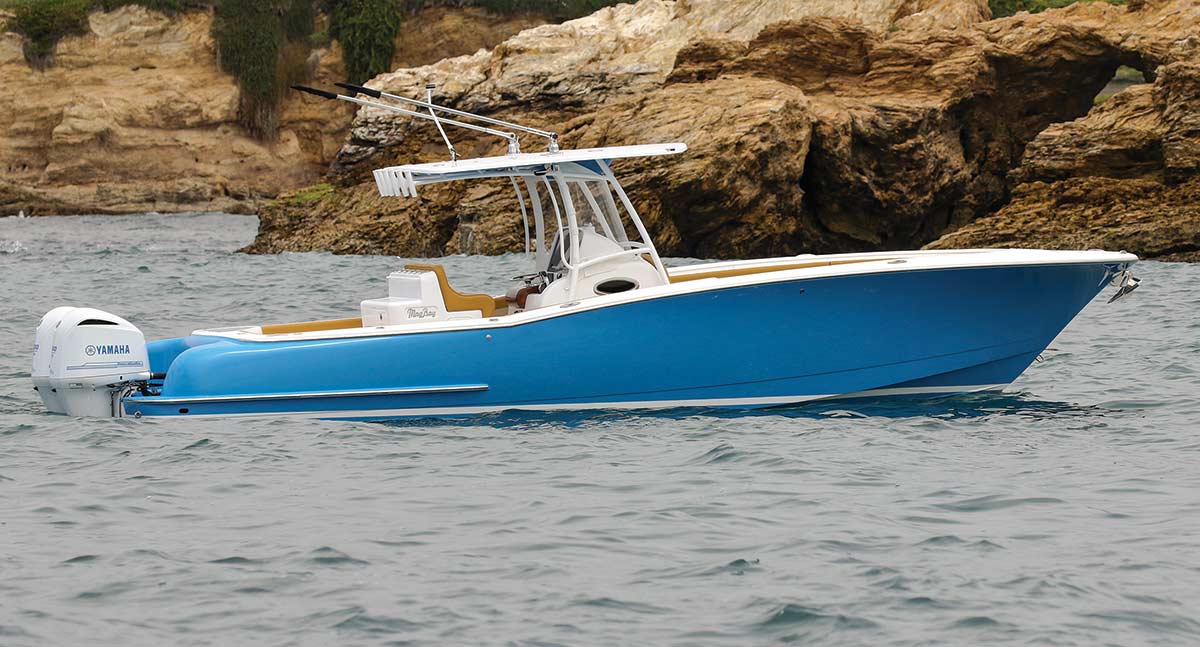A Guide to Boat Freshwater System Maintenance
Keep it flowing fresh on deck.
When it’s HOT there’s only one thing that can cool you off better than a boat ride. So, let’s anchor, hop overboard, and take a dip in the glistening cool water. But before gathering your crew for your next adventure, you may want to check a few things in addition to the fuel and oil levels. Is your domestic water tank full, the water pump operational, and the aft-deck shower wand in working condition? That saltwater swim won’t be as much fun if you’re covered in sand and salt for the ride back to the dock. This is where boat freshwater systems come into play.
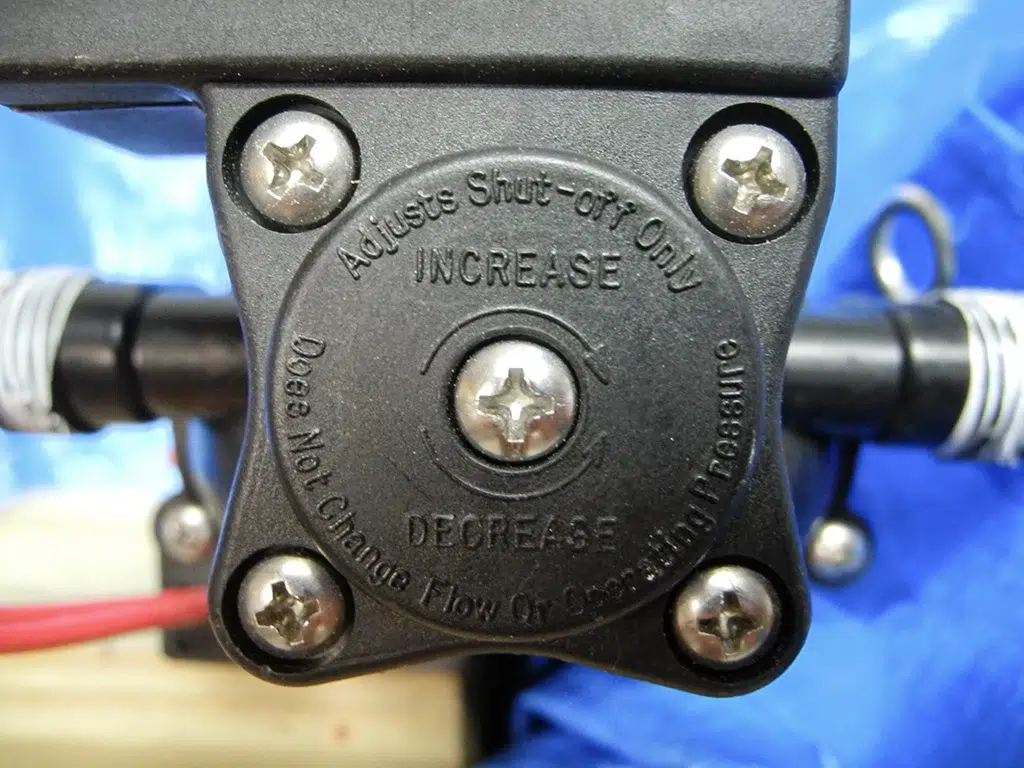
Anchor Washdown Waterworks
In addition to the aft-deck shower equipment, look at your bow for the anchor washdown pump. These pumps aboard may need a little attention, but it’s not much effort to make it all worthwhile. A quick check will ensure that the sea cock is open for water to flow easily to the anchor washdown pump. Then take a peek to see that the strainer is clear and the circuit breaker is turned on.
Since the anchor washdown is usually a raw-water system, consider purchasing a dedicated hose for easy access. Don’t mix up your deck rinse hose with your white sanitary drinking hose or your drinking water may taste strange. I recommend dropping by the boat store and make up your own anchor washdown short hose system. Depending on the size of your boat, I believe a 10-foot hose with fittings on each end will do the job well. Too long and the hose could become a storage or tripping hazard while underway. Whatever hose you select, this is great for rinsing off the mud when weighing anchor.
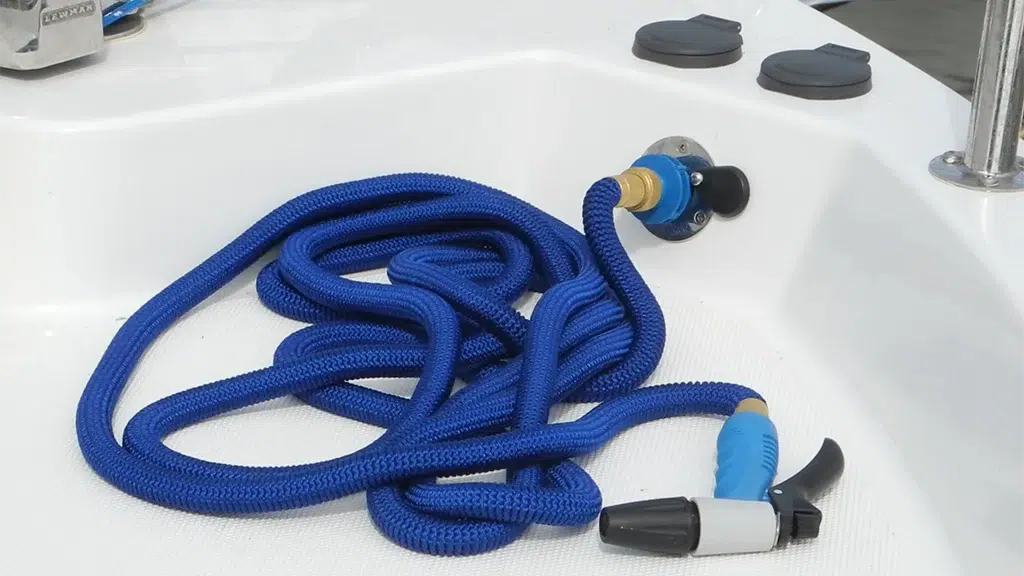
Transom Shower
The aft deck or transom shower should be in working order because it is part of the boat’s domestic freshwater system. Galley and head sinks, personal shower, icemaker, and freshwater-assisted heads are all included in this system. But a quick spritz before you start your trip will confirm that you can rinse that salt away later after your cool dip overboard. Pull the shower wand out of the transom receptacle, check the fittings, the valves, and be sure that the hose will pull out to its full length. Many times, we see the shower hose in the lazarette snagged on other items such as spare dock lines or fenders that were jammed into this tight space.
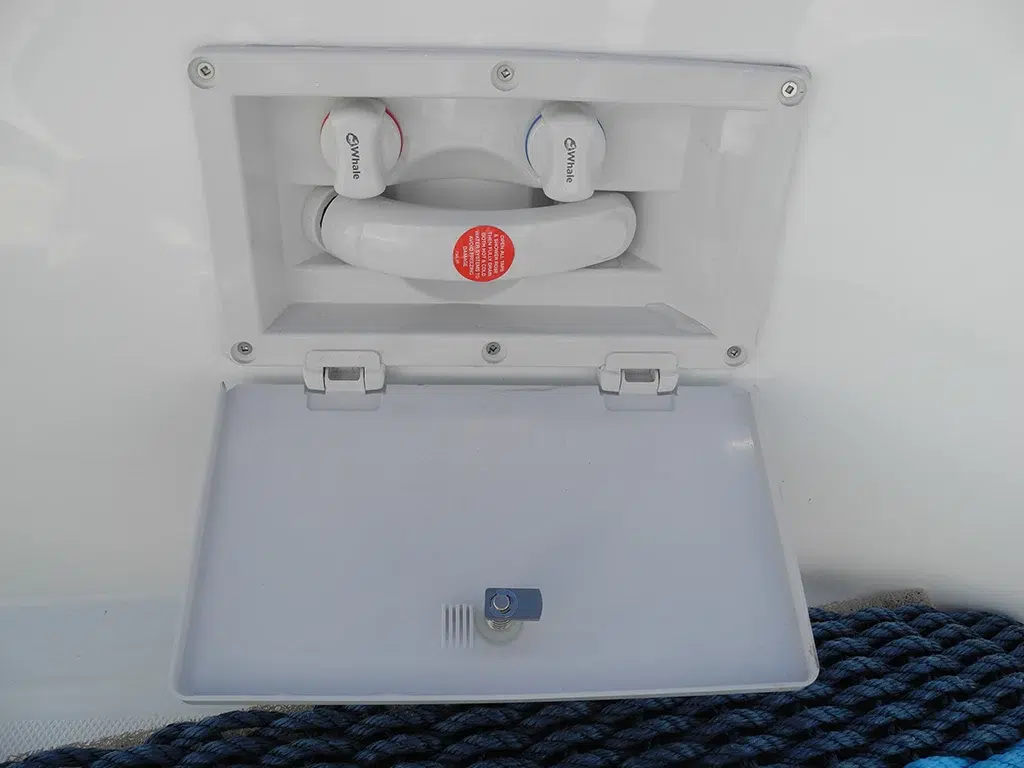
Now you should have a toasty warm, freshwater shower ready to use when you climb aboard after your swim. If your boat is equipped with an accessory engine coolant heating loop connected to the water heater, check the thermostatic tempering valve. Confirm it does not provide extremely hot water that may scald you or your guests. Everyone will delight when you show them how to glisten without a briny bath. Most aft shower equipment tucks neatly away inside a sleek cover waiting for your next adventure. But you might want to find a better hiding place for your boat keys.
Boat Freshwater Systems: Safety First and the Fun Follows
Before anyone hops overboard, trail a floating safety line behind the boat for your swimmers to hold onto. Remember to fly the Diver Down flag if you plan to snorkel or SCUBA. Visibility of the Diver Down flag is important to warn other boaters you have divers or snorkelers in the water. And now, when your guests come out of the cool, salty water, you are ready with a great transom shower to rinse off. All systems are go for another fun way to cool off on the water. Keep it flowing…fresh on deck!
-by Chris Caldwell


